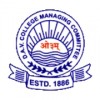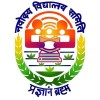
i
Aakash Educational
Services
Filter interviews by
Aakash Educational Services Accounts Officer Interview Questions and Answers
21 Interview questions
Favourable balance in cash book means excess of credit balance over debit balance.
Favourable balance is a situation where the credit balance is more than the debit balance in the cash book.
It indicates that the business has more cash inflows than outflows.
It is also known as a surplus balance.
Example: If the credit balance in the cash book is $10,000 and the debit balance is $8,000, then the favourable balance is ...
The rate of GST on SEZ supply is 0%
SEZ supplies are considered as zero-rated supplies under GST
No GST is levied on SEZ supplies
SEZ units are treated as territories outside India for GST purposes
SEZ supplies are eligible for input tax credit
GST return filing is mandatory for businesses registered under GST to report their sales, purchases, and tax liability.
It helps in maintaining transparency and accountability in the tax system.
It ensures that the correct amount of tax is paid to the government.
It helps in availing input tax credit (ITC) for the taxes paid on purchases.
It helps in avoiding penalties and legal consequences for non-compliance.
For exa...
Zero rates and nill rates are different under GST law.
Zero rated supplies are taxable but the rate of tax is 0%, while nil rated supplies are not taxable at all.
Zero rated supplies are eligible for input tax credit, while nil rated supplies are not.
Examples of zero rated supplies include exports and supplies to SEZs, while examples of nil rated supplies include education and healthcare services.
Zero rated supplies...
What people are saying about Aakash Educational Services






The general entry for cash withdrawal by owner for personal uses is a debit to drawings account and a credit to cash account.
The owner's personal withdrawals are not business expenses and should not be recorded as such.
The drawings account is a contra equity account that reduces the owner's equity in the business.
The cash account is credited because cash is being taken out of the business.
The amount of the withdra...
Yes, if the car is used for business purposes only.
ITC can be claimed for a new car bought for office use if it is used solely for business purposes.
If the car is also used for personal purposes, only a portion of the ITC can be claimed.
Proper documentation and records of usage must be maintained to claim ITC for a new car.
ITC can be claimed for expenses such as fuel, maintenance, and insurance for the car used fo...
Yes, you can get a refund if you export goods outside India.
Export of goods is considered as zero-rated supply under GST
You can claim a refund of the GST paid on the exported goods
The refund can be claimed through the GST portal
The refund process involves submitting relevant documents and forms
Reconciling GST 2A and 2B ensures accuracy of input tax credit claimed and paid to the government.
To ensure that the input tax credit claimed matches with the tax paid by the supplier
To identify any discrepancies or errors in the invoices uploaded by the supplier
To rectify any errors or discrepancies before filing GST returns
To avoid any penalties or interest charges for incorrect filing
For example, if a supplier ...
Yes, as per Income Tax Act, 1961, cash payment exceeding Rs. 10,000 is not allowed for expenses.
As per Income Tax Act, 1961, cash payment exceeding Rs. 10,000 is not allowed for expenses
This limit is applicable for both capital and revenue expenses
If the payment exceeds the limit, it should be made through banking channels
This rule is applicable for both individuals and businesses
Violating this rule can result in ...
Challan no 281 is used for payment of Advance Tax by taxpayers.
Challan no 281 is used for payment of Advance Tax by individuals, companies, and firms.
It is a form that needs to be filled with details such as name, address, PAN, assessment year, etc.
The payment can be made through cheque, cash, or online banking.
It is important to keep a copy of the challan as proof of payment.
Challan no 281 is also used for paymen...
Aakash Educational Services Accounts Officer Interview Experiences
9 interviews found
I applied via Approached by Company and was interviewed in Jun 2023. There were 3 interview rounds.
(2 Questions)
- Q1. About your Self
- Ans.
Detail-oriented Accounts Officer with a strong background in financial reporting and analysis, committed to accuracy and efficiency.
Over 5 years of experience in accounting and finance roles, managing budgets and financial statements.
Proficient in accounting software like QuickBooks and SAP, which I used to streamline reporting processes in my previous job.
Successfully reduced discrepancies in financial reports by impl...
- Q2. Salary expectation
(2 Questions)
- Q1. Banking instrument related questions
- Q2. Previous Job Related
(2 Questions)
- Q1. Accounting entry
- Q2. GST, Accounting rules
Interview Preparation Tips
- GST
- Banking
(1 Question)
- Q1. How can you handle entire accounts section give me some examples?
(19 Questions)
- Q1. What is the difference between cash and bank book?
- Q2. What is the difference between zero rates and nill rate under gst law?
- Q3. Why need to file gst return?
- Ans.
GST return filing is mandatory for businesses registered under GST to report their sales, purchases, and tax liability.
It helps in maintaining transparency and accountability in the tax system.
It ensures that the correct amount of tax is paid to the government.
It helps in availing input tax credit (ITC) for the taxes paid on purchases.
It helps in avoiding penalties and legal consequences for non-compliance.
For example,...
- Q4. Who is a taxable person under gst law?
- Ans.
A taxable person under GST law is any individual or entity that carries out a taxable supply of goods or services.
A taxable person must have a GST registration number.
They must charge GST on their taxable supplies.
They must file GST returns and pay the GST collected to the government.
Examples of taxable persons include businesses, freelancers, and service providers.
Certain individuals and entities are exempt from GST r...
- Q5. If suppliers is not file gst return can you claim itc ?
- Q6. How will you decide the gst rate on mixed supplies?
- Ans.
The GST rate on mixed supplies is determined based on the principal supply and the nature of the other supplies.
Identify the principal supply, which is the main reason for the transaction
Determine the nature of the other supplies and their proportion in the transaction
Apply the GST rate applicable to the principal supply to the entire transaction
For example, if a restaurant serves a meal with both food and beverages, a...
- Q7. What is the rate of gst on sez supply?
- Ans.
The rate of GST on SEZ supply is 0%
SEZ supplies are considered as zero-rated supplies under GST
No GST is levied on SEZ supplies
SEZ units are treated as territories outside India for GST purposes
SEZ supplies are eligible for input tax credit
- Q8. What is the gst rate on electricity charges?
- Ans.
GST is not applicable on electricity charges.
Electricity charges are exempted from GST.
GST is not levied on transmission or distribution of electricity.
However, GST is applicable on goods and services used in the production or supply of electricity.
For example, GST is applicable on coal used in thermal power plants.
- Q9. Why you need to reconcile gst 2A and 2 B?
- Ans.
Reconciling GST 2A and 2B ensures accuracy of input tax credit claimed and paid to the government.
To ensure that the input tax credit claimed matches with the tax paid by the supplier
To identify any discrepancies or errors in the invoices uploaded by the supplier
To rectify any errors or discrepancies before filing GST returns
To avoid any penalties or interest charges for incorrect filing
For example, if a supplier has n...
- Q10. What is the meaning of favourable balance in cash book?
- Ans.
Favourable balance in cash book means excess of credit balance over debit balance.
Favourable balance is a situation where the credit balance is more than the debit balance in the cash book.
It indicates that the business has more cash inflows than outflows.
It is also known as a surplus balance.
Example: If the credit balance in the cash book is $10,000 and the debit balance is $8,000, then the favourable balance is $2,00...
- Q11. What is the formula for calculating employee salary on parents day?
- Ans.
There is no specific formula for calculating employee salary on parents day.
Employee salary on parents day is usually determined by the company's policy.
Some companies may offer a bonus or gift to employees on parents day.
The bonus or gift amount may vary depending on the employee's position or length of service.
In some cases, employees may be given a day off to spend with their parents.
It is best to check with the com...
- Q12. Is there any limit to cash payment in expenses?
- Ans.
Yes, as per Income Tax Act, 1961, cash payment exceeding Rs. 10,000 is not allowed for expenses.
As per Income Tax Act, 1961, cash payment exceeding Rs. 10,000 is not allowed for expenses
This limit is applicable for both capital and revenue expenses
If the payment exceeds the limit, it should be made through banking channels
This rule is applicable for both individuals and businesses
Violating this rule can result in penal...
- Q13. What is the uses of challan no 281?
- Ans.
Challan no 281 is used for payment of Advance Tax by taxpayers.
Challan no 281 is used for payment of Advance Tax by individuals, companies, and firms.
It is a form that needs to be filled with details such as name, address, PAN, assessment year, etc.
The payment can be made through cheque, cash, or online banking.
It is important to keep a copy of the challan as proof of payment.
Challan no 281 is also used for payment of ...
- Q14. What is the general entry for cash withdrawal by owener for personal uses?
- Q15. Can we claim itc for my new car buy for office uses,?
- Ans.
Yes, if the car is used for business purposes only.
ITC can be claimed for a new car bought for office use if it is used solely for business purposes.
If the car is also used for personal purposes, only a portion of the ITC can be claimed.
Proper documentation and records of usage must be maintained to claim ITC for a new car.
ITC can be claimed for expenses such as fuel, maintenance, and insurance for the car used for bus...
- Q16. Can i get refund if i export goods in outside in India?
- Ans.
Yes, you can get a refund if you export goods outside India.
Export of goods is considered as zero-rated supply under GST
You can claim a refund of the GST paid on the exported goods
The refund can be claimed through the GST portal
The refund process involves submitting relevant documents and forms
- Q17. What is the uses of bank garantee?
- Ans.
Bank guarantee is a commitment made by a bank to pay a specified amount if the beneficiary fails to meet their obligations.
Used in international trade to ensure payment for goods or services
Used in construction projects to ensure completion of work
Can be used as collateral for loans
Can be used to secure a lease agreement
Beneficiary can use the guarantee to obtain a loan
Types of bank guarantees include bid bond, perform...
- Q18. What is the meaning of LUT?
- Ans.
LUT stands for Letter of Undertaking.
LUT is a document that allows exporters to export goods or services without paying GST.
It is an alternative to paying IGST on exports and claiming a refund later.
LUT is valid for a financial year and needs to be renewed annually.
It is applicable only for exports and not for supplies made within the country.
LUT is submitted online through the GST portal.
- Q19. What is the difference between capital expenses and revenue expenses?
- Ans.
Capital expenses are for long-term assets while revenue expenses are for day-to-day operations.
Capital expenses are investments in long-term assets like buildings, equipment, and vehicles.
Revenue expenses are costs incurred in day-to-day operations like salaries, rent, and utilities.
Capital expenses are usually one-time expenses while revenue expenses are recurring.
Capital expenses are recorded as assets on the balance...
Interview Preparation Tips
Skills evaluated in this interview

(1 Question)
- Q1. Excel sheet, GST. VLOOKUP
(1 Question)
- Q1. Previous company details
Interview Preparation Tips
(1 Question)
- Q1. Tell me about yourself.
(1 Question)
- Q1. Accounting related questions
Online test
(1 Question)
- Q1. Accounting related questions
(1 Question)
- Q1. They are asked questions related to software
Interview Preparation Tips
I applied via Naukri.com and was interviewed in Mar 2022. There were 2 interview rounds.

(1 Question)
- Q1. Introduction, Work Profile according to Experiences, Question Related to Familty Background.
Interview Preparation Tips
- About Your Work Experience
I applied via Naukri.com and was interviewed in Jun 2021. There were 4 interview rounds.
Interview Questionnaire
3 Questions
- Q1. How many years of experience do you have?
- Ans. 4 year to 5 year ,you can add your own
- Q2. What is the priority in aesl during your job ?
- Ans.
The priority in AESL during my job as an Accounts Officer is to ensure accurate financial record-keeping and compliance with regulations.
Accurate financial record-keeping
Compliance with regulations
Timely and accurate reporting
Effective communication with stakeholders
Identifying and resolving financial discrepancies
Budgeting and financial planning
Maintaining confidentiality of financial information
- Q3. Can you give more time when needed?
- Ans.
I am open to working overtime as needed to meet deadlines and support the team's goals effectively.
I understand that during peak periods, extra hours may be necessary to ensure all accounts are accurate and up-to-date.
In my previous role, I often worked overtime during month-end closing to finalize reports and ensure compliance.
I believe that flexibility in working hours can lead to better team collaboration and projec...
Interview Preparation Tips
I appeared for an interview before Dec 2021.

(1 Question)
- Q1. Genaral question about accounts
(2 Questions)
- Q1. Journal entries and tax ratings in india
- Ans.
Journal entries are the recording of financial transactions in a company's accounting system. Tax ratings in India are based on the type of tax and the applicable rate.
Journal entries are recorded in the general ledger using debits and credits
Tax ratings in India include GST, income tax, and customs duty
GST rates vary depending on the type of goods or services being sold
Income tax rates vary based on the income level o...
- Q2. Salary negotiation and placement
Interview Preparation Tips
I applied via Naukri.com and was interviewed in Jun 2021. There were 4 interview rounds.
Interview Questionnaire
1 Question
- Q1. Vacancy related questions
Interview Preparation Tips
Interview Questionnaire
1 Question
- Q1. Previous experience
Interview questions from similar companies

Account Assistant Interview Questions & Answers
SRM Institute of Science and Technologyposted on 5 Sep 2022
I applied via Company Website and was interviewed before Sep 2021. There were 2 interview rounds.
Basic accounting questions
Basic journal entries and accounts
(1 Question)
- Q1. What is tds and how much percentage should be deducted?
- Ans.
TDS stands for Tax Deducted at Source. It is a tax collected by the government at the time of payment.
TDS is a tax collected by the government at the time of payment.
It is deducted from the income of the recipient.
The percentage of TDS varies depending on the type of payment and the income of the recipient.
For example, the TDS rate for salary income can range from 5% to 30% depending on the income slab.
For rent payment...
Interview Preparation Tips
- Golden rules
And be prepared with golden rules
Basics of tds and gst
Aakash Educational Services Interview FAQs
Some of the top questions asked at the Aakash Educational Services Accounts Officer interview -
Tell us how to improve this page.
Aakash Educational Services Interviews By Designations
- Aakash Educational Services Assistant Lecturer Interview Questions
- Aakash Educational Services Admission Officer Interview Questions
- Aakash Educational Services Student Support and Admission Officer Interview Questions
- Aakash Educational Services Accounts Officer Interview Questions
- Aakash Educational Services Faculty Interview Questions
- Aakash Educational Services Senior Executive Interview Questions
- Aakash Educational Services Admission Counsellor Interview Questions
- Aakash Educational Services Assistant Professor Interview Questions
- Show more
Interview Questions for Popular Designations
Overall Interview Experience Rating
based on 6 interview experiences
Difficulty level
Duration
Interview Questions from Similar Companies
Aakash Educational Services Accounts Officer Reviews and Ratings
based on 48 reviews
Rating in categories
|
Assistant Manager
547
salaries
| ₹4 L/yr - ₹11 L/yr |
|
Senior Executive
422
salaries
| ₹2.8 L/yr - ₹7.7 L/yr |
|
Assistant Lecturer
244
salaries
| ₹4 L/yr - ₹10.5 L/yr |
|
Admission Officer
244
salaries
| ₹2.4 L/yr - ₹8.1 L/yr |
|
Lecturer
235
salaries
| ₹5.8 L/yr - ₹21.8 L/yr |

VIBGYOR Group of Schools

AIIMS

Kendriya Vidyalaya Sangathan

ALLEN Career Institute
- Home >
- Interviews >
- Aakash Educational Services Interview Questions













